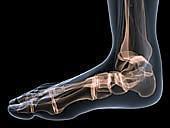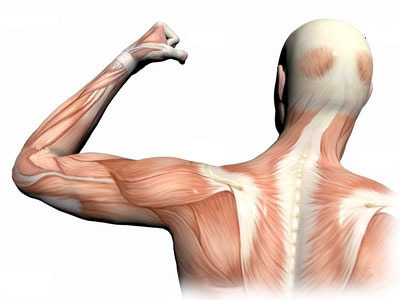What Causes Muscle Twitching?
What is muscle twitching
Muscle twitches are small involuntary movements involving small areas of muscle or muscle fibers. These twitches often go unnoticed, and when you do feel them, they tend to feel worse and more noticeable than they actually are. Twitches, also known as fasciculation’s, can occur in the arms, feet, fingers, hands, head, legs, and other parts of the body. Twitches can also occur in the eye muscles.
Muscle twitches are usually harmless and are more of an irritation than a cause for concern. In most cases they disappear shortly after they appear or when the underlying cause is seen too. In some rare cases, however, muscle twitching can be a sign of a neurological disorder.
Causes of muscle twitching
Anxiety and stress
Anxiety and stress are perhaps the number one cause of muscle twitching, which is also known as benign fasciculation syndrome. Benign means the muscle twitching will not develop into anything serious. Fasciculation is the medical term for muscle twitching. Syndrome means that typically, a lot of muscle twitching is also accompanied by muscle cramps, muscle aches and some tingling. But these other symptoms come on after the person starts excessively worrying that the muscle twitching is a sign of a deadly disease.
Anxiety makes muscles twitch. It’s that simple. One theory is that in ancient times, early man had to always be ready for action, living in a harsh environment with no modern-day conveniences to protect him. His muscles and entire nervous system had to always be prepared for a fight with danger, or for a flight from danger.
In the genes
We are genetically hardwired to physiologically react to a crisis situation. Our muscles are on standby to jump into action. But contemporary stress is different from ancient stress. Today, we don’t need to be ready for the charging bison or hissing snake. But just the same, our bodies are under siege by other forms of anxiety: job stress, paying bills, foreclosure threats, protecting teens from drugs and sex, marital problems, traffic jams, business meetings, etc. It’s no wonder that our muscles are always jumping. When we are under chronic stress, our muscles twitch because they think that at any moment, action will be required of them.
Other causes of muscle twitching
- Lack of sleep and fatigue
- Dehydration
- Benign twitches (twitches without known cause often affecting eyelids, calf and thumbs)
- Excessive caffeine
- Side-effects of certain drugs or medication (such as diuretics, corticosteroids, or estrogens)
- Withdrawals from certain medications (particularly benzodiazepines)
- Lack of certain vitamins and minerals, often a Magnesium deficiency
- Benign fasciculation syndrome
- Amyotrophic lateral sclerosis (ALS or Lou Gehrig’s disease)
- Damage to the nerve that leads to a muscle
- Muscular dystrophy
- Spinal muscular atrophy
- Weak muscles (myopathy)
- Multiple sclerosis






